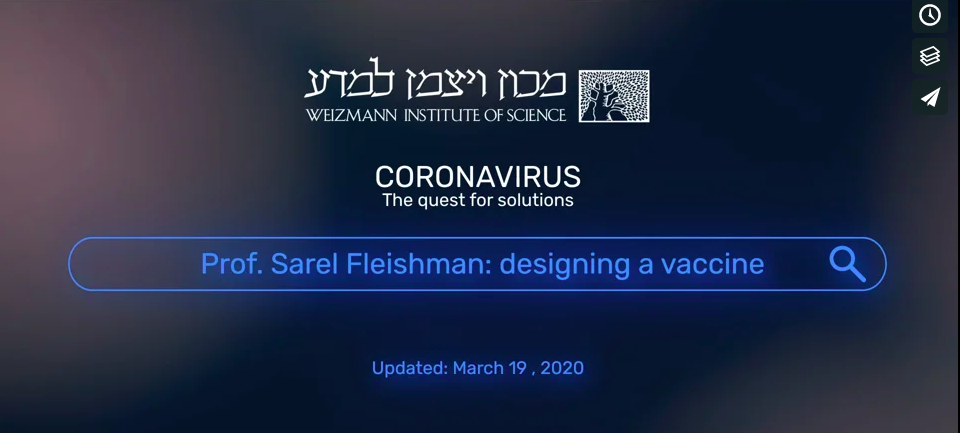
The winners of the third annual Blavatnik Awards for Young Scientists in Israel, a prize run by the Blavatnik Family Foundation in collaboration with the New York Academy of Sciences and the Israel Academy of Sciences and Humanities, were announced on Monday.
These prizes are awarded to scientists under the age of 42, who have already made significant achievements and show promise for future innovations in the fields of life sciences, chemistry and physical sciences and engineering.
This year, each of the laureates are from the Weizmann Institute of Science and each one will receive an award of $100,000 for their work and discoveries.
The recipients of this award are Dr. Igor Ulitsky, senior scientist at the Department of Biological Regulation; Dr. Emmanuel Levy, senior scientist at the Department of Structural Biology; and Dr. Guy Rothblum, associate professor at the Department of Computer Science and Applied Mathematics.
Ulitsky received the life sciences award for his work in uncharted areas of the human genome, studying long non-coding RNA – known as lncRNA. Rather than coding for a specific protein like normal RNA does, lncRNA controls gene expression, which means that learning about lncRNA in its active form in the human body could lead to the creation of new regenerative medicines and advanced disease treatment. Ulitsky has used experimental and computational methods to discover the potential use of lncRNAs in order to treat serious diseases like cancer, epilepsy and brain damage.
Levy received the chemistry award for his work that has revealed protein hot-spots, places where mutations can often trigger new assemblages of protein building-blocks. This work suggests these assemblages happen during evolution, in both health and disease. Levy has also used computational and biochemical methods to study the interactions between proteins, helping scientists understand the molecular infrastructure of living cells.
Guy Rothblum received the physical sciences and engineering award for his work developing theories meant to address concerns regarding the privacy and security of personal data in the modern era of machine learning, cloud computing, “Big Data” and artificial intelligence. Rothblum has developed an algorithm to prevent the leakage of personal and sensitive information from analysis on big data sets, like in medical records or census data.
“From studying uncharted areas of the human genome and mapping the protein organization of cells, to improving security and efficiency in cloud computing, this year’s Blavatnik Awards laureates have created entirely new methods to advance their respective fields and society as a whole,” said Ellis Rubinstein, president of the New York Academy of Sciences.
The three laureates will be honored at a formal ceremony at the Israel Museum in Jerusalem on March 29, 2020, where they will join the ranks of elite scientists all around Israel who have received this award since its launch in 2017.
In addition, the laureates will join the international community of 294 Blavatnik Science Scholars with awards totaling to $9.19 million. They will also be invited to attend the annual Blavatnik Science Symposium in New York City for past and present Blavatnik Award honorees to encourage collaborations in cross-disciplinary scientific research.
“For the past several decades, Israel has been a powerhouse of scientific breakthroughs and technological innovation," said Len Blavatnik, head of the Blavatnik Family Foundation.
“The three young scientists recognized by these Awards are outstanding examples of the enormous potential of Israeli scientific talent.”
